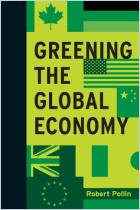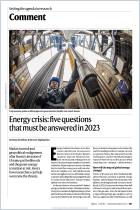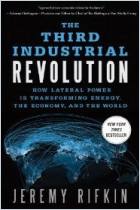
Read or listen offline
Amazon KindleRecommendation
The European Union’s evolution to sustainable green energy will affect its job growth and economic development. This thorough, data-dependent, multidisciplinary report from the Centre for European Policy Studies, a leading European think tank, provides welcome insights into what that transition will entail. The study concludes that green energy should create more and better-paying jobs in Poland, Sweden and Spain, the EU countries it analyzes, along with greater energy security through the expanded use of wind, nuclear and solar power. Though the text can be dry and plodding at times, getAbstract recommends its instructive conclusions to executives, policy makers, environmentalists and investors seeking evidence that sustainable energy can produce jobs.
Summary
About the Authors
Arno Behrens heads energy research at the Centre for European Policy Studies, where Fabio Genoese is a research fellow, Monica Alessi is a program manager, Julian Wieczorkiewicz and Caroline Coulie are research assistants, and Christian Egenhofer is a senior research fellow.
























Comment on this summary